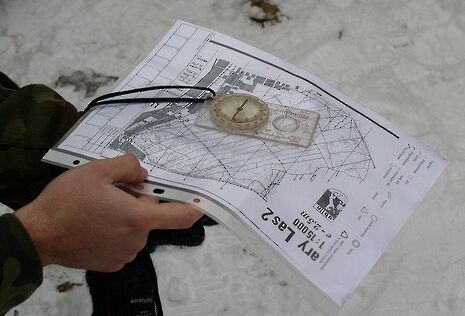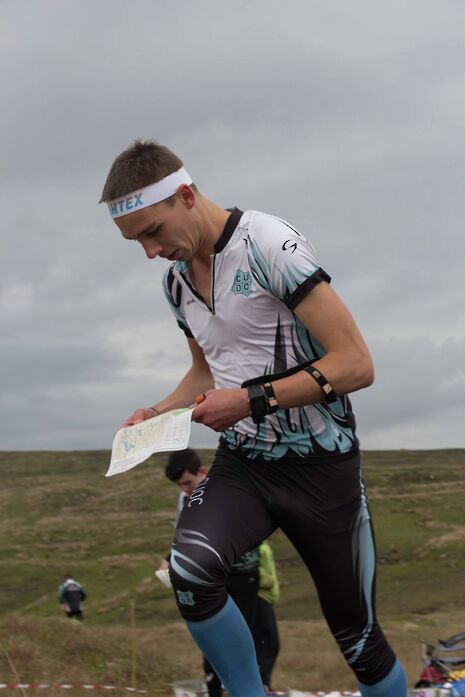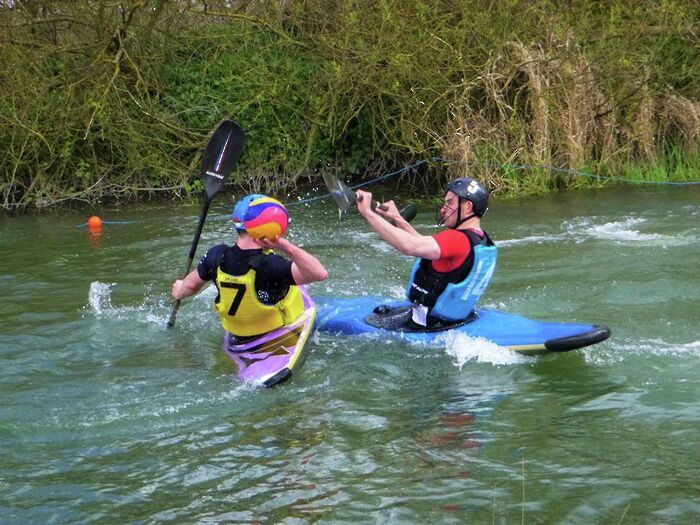Rogue Sport of the Week: Orienteering with Paul Pružina
Devarshi Lodhia gets the lay of the land with Cambridge University Orienteering Club’s Paul Pružina

Athlete Profile
- Name: Paul Pružina
- College: Jesus
- Degree: Maths
- Hometown: Comber, County Down
Having been named the British Orienteering University Club of the Year for 2017, and with the Women's team recording a second place finish at the BUCS Championships, the Cambridge University Orienteering Club has enjoyed a successful season. Varsity sat down with Men's Captain, Paul Pružina to discuss running, bogs, and the importance of having a good sense of direction.
Can you give us a brief summary of orienteering?
Orienteering is a cross country race with the added element of navigation. At the start you’re given a map with a number of ‘control points’ in a fixed order, which you have to run between as quickly as possible. To keep the focus on the navigation and to stop people from following, it’s run like a time trial, where runners are started a couple of minutes apart. Normally, it’s held in wild areas like forests and open mountain, but in the past few years, urban ‘Sprint’ orienteering has become very popular, with the focus more on quick decision making.
How did you get into it?
I’ve been orienteering for most of my life, with my parents taking us to races when my siblings and I were young, but I started going regularly when I was about twelve, and training seriously when I was sixteen when was selected for the European Youth Championships. Since then, it’s become a much bigger part of my life, and I’m heading to Finland this summer for my last Junior World Champs.
“Cambridge is located in probably the worst region of the UK for orienteering, because it’s so flat, so there aren’t any really good areas nearby.”
What’s the hardest thing about orienteering?
Being fast and accurate at the same time is difficult, because the faster you move, the faster you need to navigate, which makes it harder not to make mistakes, which would mean you lose time relocating and getting back on track.
What traits help facilitate success in orienteering?
A good sense of direction, of course! More precisely, you need to be able to plan ahead, and to visualise the terrain, so that you know what’s coming next, and can make the best route choice decisions. Physically, you need to be a really strong runner, because the terrain is so rough – you’re often running through bogs or pushing through knee high heather and jumping rocks and logs.

What kind of training schedule do you have?
I do most of my training with the Hare and Hounds, and am currently running about 110 km/week, including two intervals sessions and a couple of circuits / core sessions. I normally orienteer only once a week, but outside of term I spend a lot more time in the terrain, either on training camps or just heading down to the mountains for a day.
Who are the biggest names in the world of orienteering?
Thierry Gueorgiou (FRA) is a complete legend of the sport – he’s been winning World Championship Golds since 2003, and has only stopped absolutely dominating in the past couple of years. The sport was developed in Scandinavia, so there’s always a lot of Swedes and Norwegians at the top like Tove Alexandersson, who won World champs medals while she was still a junior. In the men’s competition right now, the ones to watch are Daniel Hubmann and Matthias Kyburz from Switzerland, as well as Olav Lundanes from Norway, who have all put in some solid performances this year.
What’s the state of orienteering in Cambridge?
Cambridge is located in probably the worst region of the UK for orienteering, because it’s so flat, so there aren’t any really good areas nearby. At the end of term we often go on trips further afield (in the last year we’ve been to Norway, France and the Lake District) to get some better terrain and some proper training. We’re quite a small club, but still normally come in the top few teams at BUCS, and get some strong individual results.
How do you reconcile it with the Cambridge workload?
During the term it’s generally easy to get out for a run during the day – it’s a great break from work and a chance to see some friends for a bit, and having training camps after term is ended works quite well - nobody focuses on working because everyone’s fed up with that after eight weeks. Fitting in competitions can be a bit more difficult, but it’s quite nice to get away from Cambridge for a weekend - at the start of term I had to go to Galway for selection races, which was way more fun than staying and working.
How easy is it for people to get involved?
Anyone can turn up to any of our sessions – have a look at the calendar on our website www.cuoc.org.uk,, because we meet in a different place every week. You can also get in touch with captain@cuoc.org.uk. There are always plenty of experienced orienteers there to lend a hand an introduce beginners to the sport, and all the sessions are planned as several short loops from one point, so you can go at whatever speed you like!
 News / Uni Scout and Guide Club affirms trans inclusion 12 December 2025
News / Uni Scout and Guide Club affirms trans inclusion 12 December 2025 News / Cambridge study finds students learn better with notes than AI13 December 2025
News / Cambridge study finds students learn better with notes than AI13 December 2025 News / Cambridge Vet School gets lifeline year to stay accredited28 November 2025
News / Cambridge Vet School gets lifeline year to stay accredited28 November 2025 Science / Did your ex trip on King’s Parade? The science behind the ‘ick’12 December 2025
Science / Did your ex trip on King’s Parade? The science behind the ‘ick’12 December 2025 News / Pembroke to convert listed office building into accom9 December 2025
News / Pembroke to convert listed office building into accom9 December 2025









